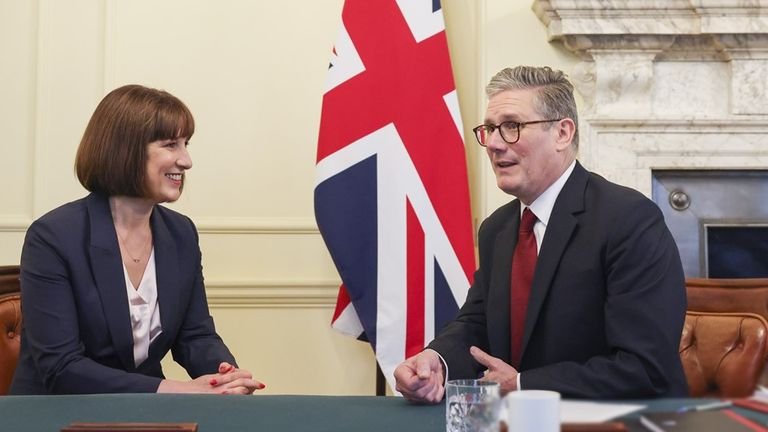In recent weeks, the U.K.’s public finances have been under intense scrutiny, particularly with the Labour leadership’s claim of a “£22 billion black hole.” Labour Party leader Sir Keir Starmer has been vocal about the alleged deficit, attributing it to the Conservative government’s financial mismanagement. The figure has been cited as a major factor behind controversial decisions, such as the reduction of the winter fuel payment. But how valid is this claim, and what does it mean for the future of the U.K.’s economic policies?
The £22 billion claim
The £21.9 billion figure, often cited as equivalent to £22 billion, emerged from a recent audit carried out by the Treasury. The audit, published in late July, highlighted a number of areas where public spending is expected to exceed the budgeted amount. Key factors contributing to this shortfall include:
Public sector pay rises: Higher-than-expected pay rises for public sector workers have led to higher expenditure.
Overspending on projects: Expenditure on initiatives such as the asylum system has exceeded initial estimates.
Unexpected costs: Rising inflation has led to additional expenditures that were not originally budgeted for.
Military aid to Ukraine: Financial aid for Ukraine has put unexpected pressure on the budget.
While the £22 billion figure represents a small fraction of the UK’s total public expenditure of £1,226 billion for the year, it is a large sum in terms of fiscal management.
Labour’s response and actions
In response to the discovery of overspending, Chancellor Rachel Reeves has implemented a number of measures to ease the financial strain:
Ending the winter fuel payment: Payments will be cut for those not receiving pension credit.
Cancelling infrastructure projects: Notable projects such as the Stonehenge road tunnel have been cancelled.
Abolishing the social care cap: plans to cap social care charges from October 2025 have been put on hold.
These actions have sparked significant debate. While the government describes these measures as necessary to stabilise the economy, critics argue that they disproportionately affect vulnerable populations, particularly elderly individuals who rely on winter fuel payments.
Government awareness and historical context
One point of contention is whether the Labour government should have anticipated the extent of overspending. The Institute for Fiscal Studies (IFS) suggests that while some financial pressures were known, others were less predictable. For example, significant overspending on the asylum system was unexpected, but some aspects, such as potential increases in public sector pay, could have been anticipated.
Former Conservative Chancellor Jeremy Hunt has dismissed the £22 billion figure as “fake”. He argues that public finances are not as dire as portrayed by Labour. Hunt accused the current government of using the figure as an excuse for potential tax rises.
Civil service insight
A leaked letter from Simon Case, the UK’s most senior civil servant, suggested that the previous government’s failure to conduct a spending review in its final years contributed to financial uncertainty. However, Jeremy Hunt responded by saying that any inaccuracy in public finance estimates would be a serious breach of the civil service code, insisting that if such a breach occurred, Labour’s claims would be unfounded.
Is there really a ‘black hole’?
The term “black hole” refers to a situation where the government is forced to make difficult decisions due to an unexpected financial crisis. However, the reality is more nuanced. While the £22 billion figure highlights significant financial challenges, it also reflects the complex and often unpredictable nature of public finance management.
Nina Scarrow, chief executive of the Centre for Economics and Business Research, points out that the size of the alleged black hole is highly speculative and subject to change. There is currently no sign of an imminent financial crisis or risk of pressure on the pound, as seen during the tenure of former Prime Minister Liz Truss.
The broader picture
The debate over the £22 billion shortfall also brings into focus broader issues relating to fiscal policy and economic management. The government’s response, including spending cuts and policy adjustments, is part of a larger strategy to address immediate fiscal pressures aimed at stabilizing the economy. Yet, these measures also underscore the ongoing challenges of balancing fiscal responsibility with the need to support vulnerable populations.
Looking ahead
As the UK prepares for the upcoming budget, attention will likely turn to how the government plans to address the fiscal shortfall and manage public expectations. The Treasury’s audit and subsequent actions by the Labour government are just the beginning of a long-term effort to stabilize the country’s finances.
